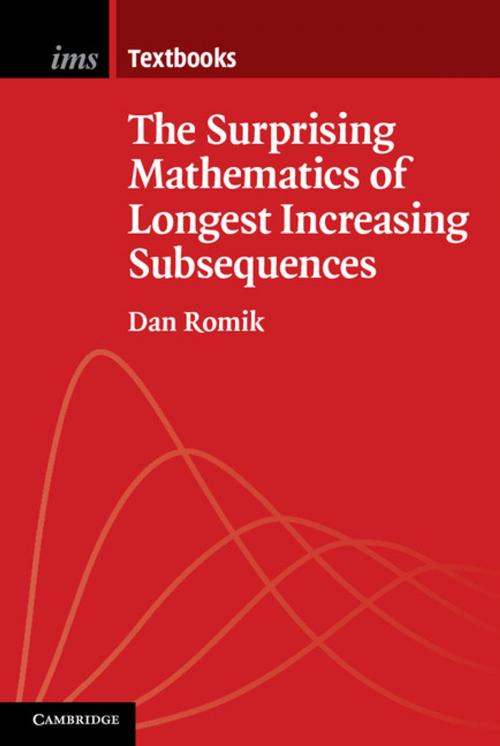The Surprising Mathematics of Longest Increasing Subsequences
Nonfiction, Science & Nature, Mathematics, Discrete Mathematics, Statistics| Author: | Dan Romik | ISBN: | 9781316189764 |
| Publisher: | Cambridge University Press | Publication: | February 2, 2015 |
| Imprint: | Cambridge University Press | Language: | English |
| Author: | Dan Romik |
| ISBN: | 9781316189764 |
| Publisher: | Cambridge University Press |
| Publication: | February 2, 2015 |
| Imprint: | Cambridge University Press |
| Language: | English |
In a surprising sequence of developments, the longest increasing subsequence problem, originally mentioned as merely a curious example in a 1961 paper, has proven to have deep connections to many seemingly unrelated branches of mathematics, such as random permutations, random matrices, Young tableaux, and the corner growth model. The detailed and playful study of these connections makes this book suitable as a starting point for a wider exploration of elegant mathematical ideas that are of interest to every mathematician and to many computer scientists, physicists and statisticians. The specific topics covered are the Vershik-Kerov–Logan-Shepp limit shape theorem, the Baik–Deift–Johansson theorem, the Tracy–Widom distribution, and the corner growth process. This exciting body of work, encompassing important advances in probability and combinatorics over the last forty years, is made accessible to a general graduate-level audience for the first time in a highly polished presentation.
In a surprising sequence of developments, the longest increasing subsequence problem, originally mentioned as merely a curious example in a 1961 paper, has proven to have deep connections to many seemingly unrelated branches of mathematics, such as random permutations, random matrices, Young tableaux, and the corner growth model. The detailed and playful study of these connections makes this book suitable as a starting point for a wider exploration of elegant mathematical ideas that are of interest to every mathematician and to many computer scientists, physicists and statisticians. The specific topics covered are the Vershik-Kerov–Logan-Shepp limit shape theorem, the Baik–Deift–Johansson theorem, the Tracy–Widom distribution, and the corner growth process. This exciting body of work, encompassing important advances in probability and combinatorics over the last forty years, is made accessible to a general graduate-level audience for the first time in a highly polished presentation.















